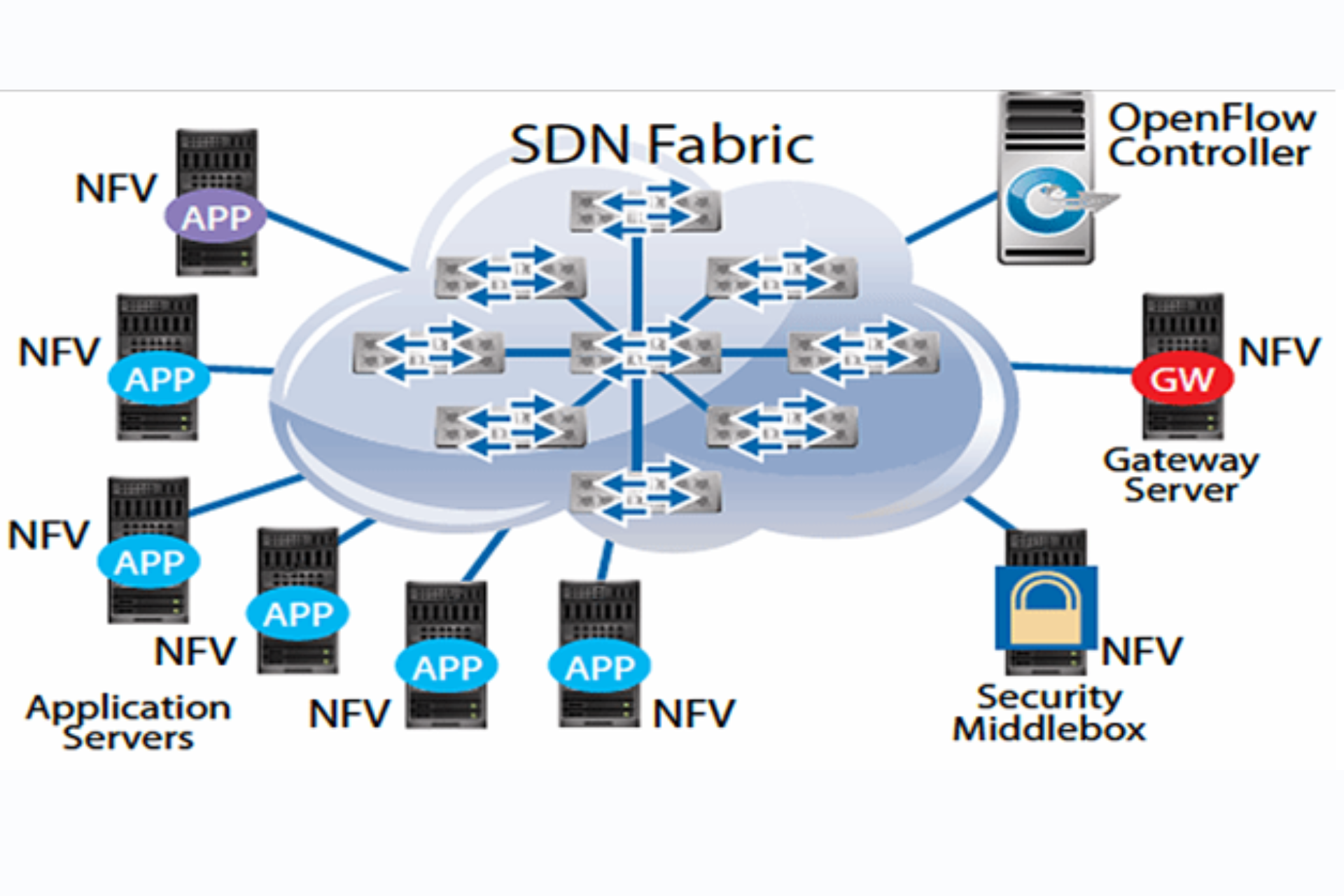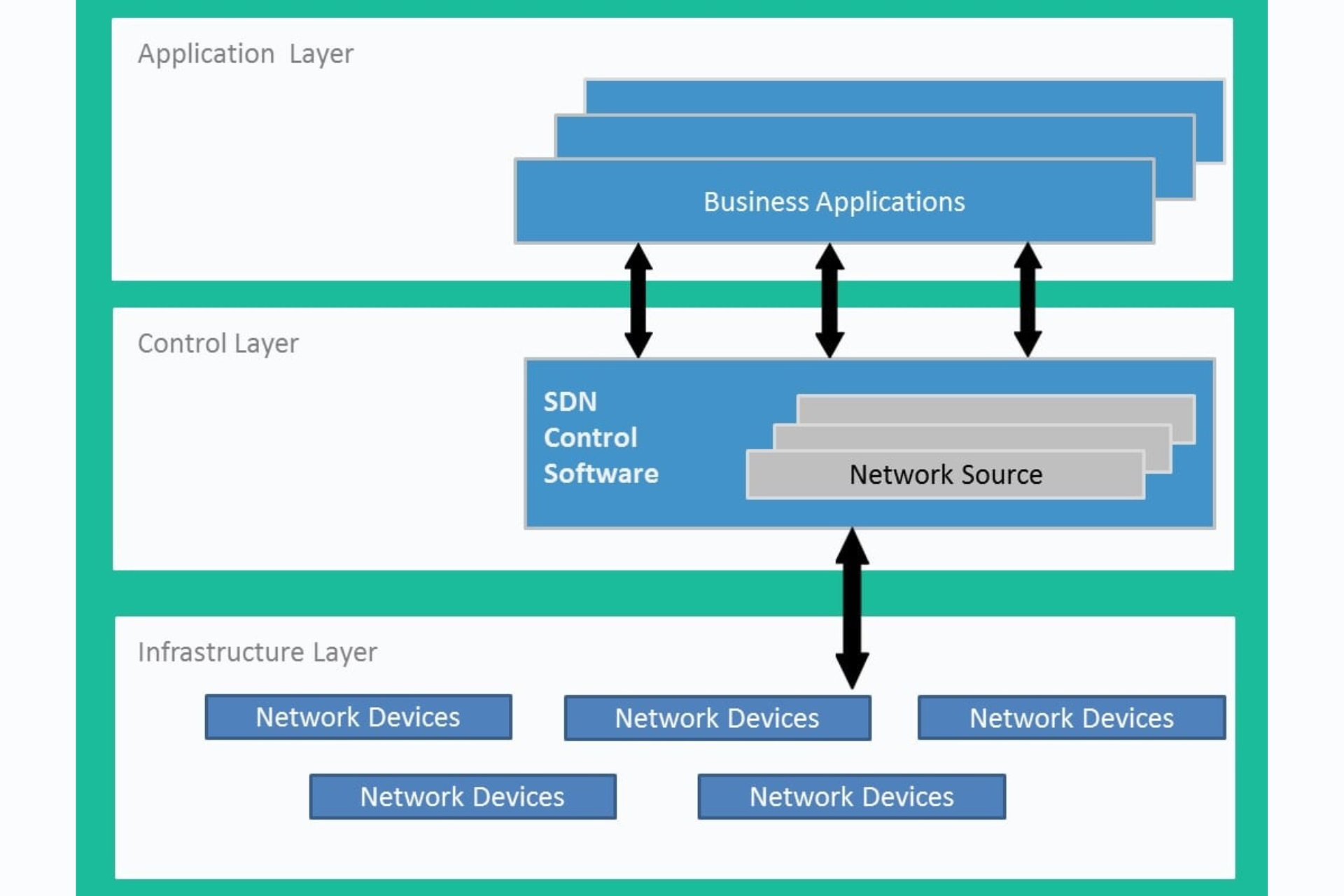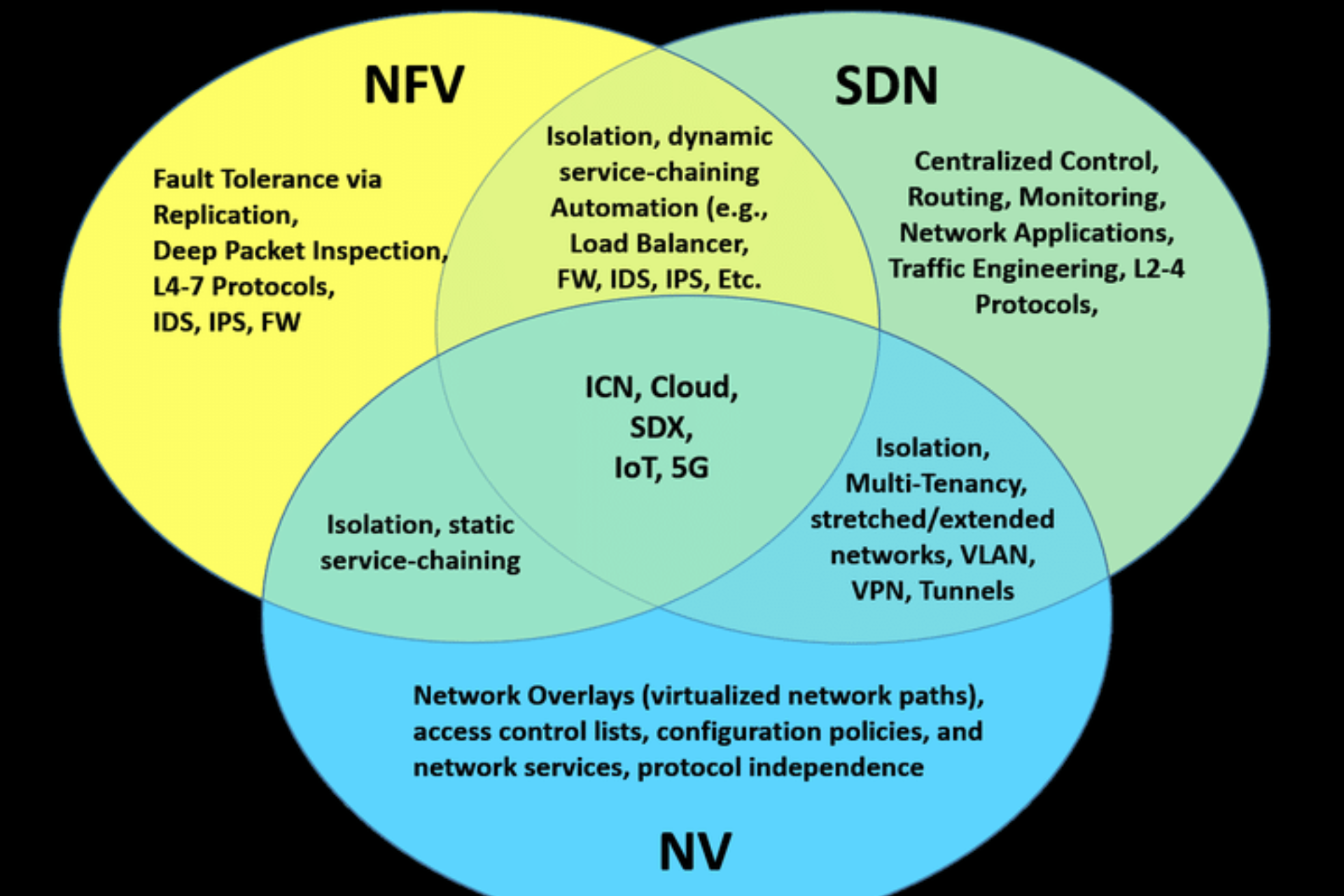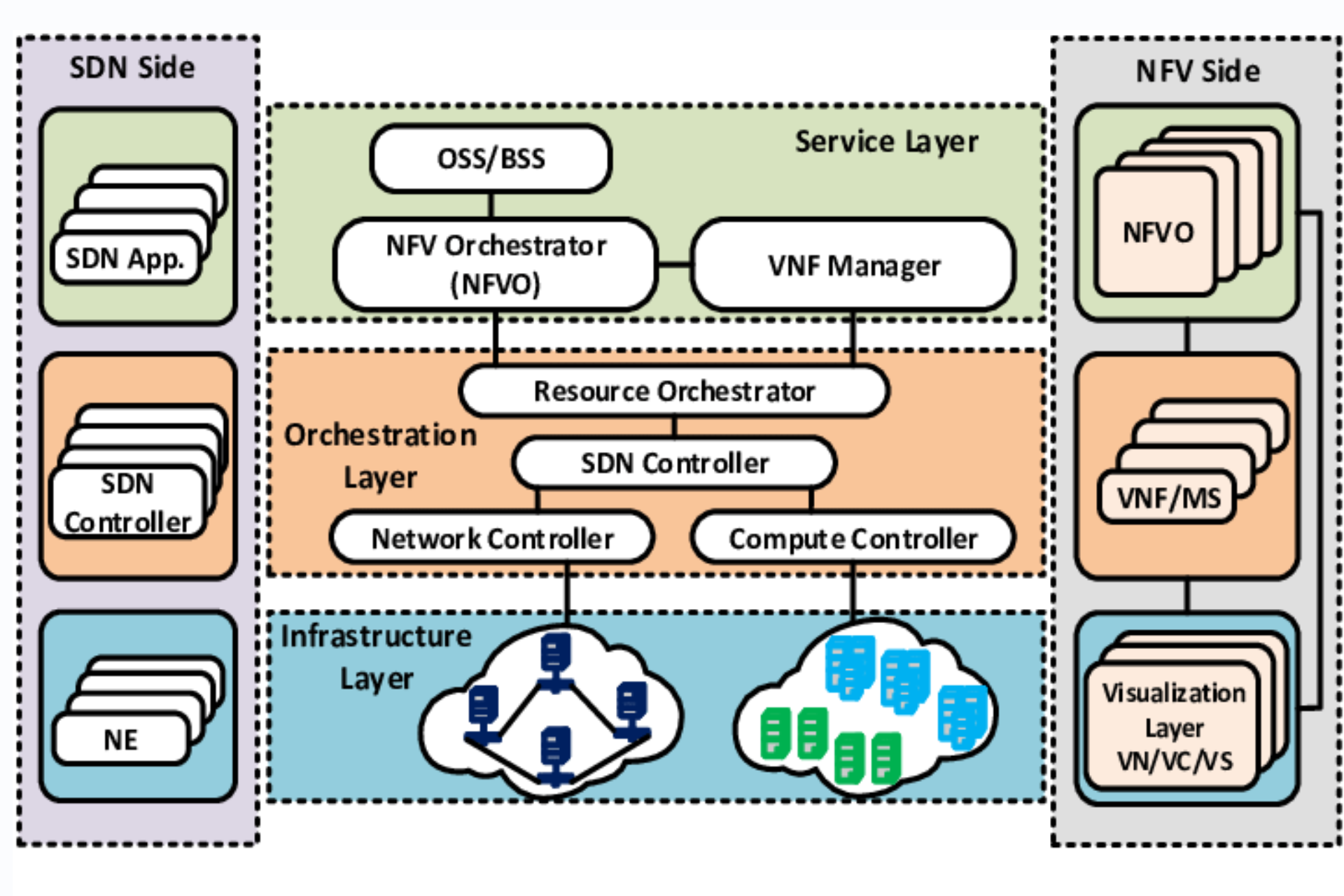Revolutionizing Network Management: The Promise and Peril of NFV and SDN
- Home
- Case Study
- Revolutionizing Network Management: The Promise and Peril of NFV and SDN

The ever-growing demands of cloud computing, mobility, and the Internet of Things (IoT) necessitate agile and adaptable network infrastructures. Network Function Virtualization (NFV) and Software-Defined Networking (SDN) emerge as transformative technologies, promising to revolutionize network management by offering flexibility, scalability, and cost-effectiveness. Here, we'll delve into the potential of NFV and SDN, explore the challenges associated with their implementation, and examine Paysenz's contributions to this evolving landscape.
Unlocking Network Agility: The Power of NFV and SDN
NFV (Network Function Virtualization): Traditionally, network functions like firewalls, load balancers, and intrusion detection systems (IDS) were delivered on dedicated hardware appliances. NFV virtualizes these functions, transforming them into software applications that can run on industry-standard servers. This offers several advantages:
Increased Agility: Virtualized network functions can be easily deployed, scaled, and upgraded on-demand, enabling faster service provisioning and adaptation to changing network requirements.
Reduced Costs: By eliminating the need for dedicated hardware, NFV can significantly reduce network infrastructure costs.
Improved Efficiency: Server consolidation and resource sharing lead to better hardware utilization and lower energy consumption.
SDN (Software-Defined Networking): SDN separates the control plane (network intelligence) from the data plane (data forwarding) of network devices. This allows for centralized, programmatic control of the network through software, offering significant benefits:
Simplified Network Management: SDN centralizes network configuration and management, simplifying complex tasks and enabling automation.
Enhanced Visibility and Control: SDN provides a holistic view of the network, allowing for better resource allocation, traffic optimization, and troubleshooting.
Faster Innovation: The decoupling of control and data planes allows for rapid development and deployment of new network services.
Navigating the Challenges: Hurdles on the Path to NFV and SDN Adoption
Despite their potential, NFV and SDN implementations face certain challenges:
Security Considerations: Virtualized network functions and the centralized control plane of SDN introduce new attack vectors. Robust security measures are essential to protect against vulnerabilities.
Network Orchestration: Effectively managing and orchestrating the complex interplay between virtualized network functions and the physical network infrastructure remains a challenge.
Skills Gap: The transition to NFV and SDN requires a workforce with expertise in software development, network automation, and orchestration tools.
Paysenz: Advancing the Frontiers of NFV and SDN
At Paysenz, we are actively researching and developing solutions to address the challenges of NFV and SDN adoption:
Case Study: Securing the Virtualized Network: Paysenz partnered with a telecommunications company to implement NFV for core network functions. Our research focused on developing a comprehensive security framework for the virtualized environment, including micro-segmentation, workload isolation, and threat detection strategies. This case study demonstrates the successful implementation of NFV while prioritizing security.
Research on Network Orchestration Automation: Paysenz is actively researching automation tools and frameworks that can simplify network orchestration in NFV and SDN environments. These tools aim to automate tasks like service provisioning, resource allocation, and lifecycle management, reducing operational complexity and human error.
Developing SDN-based Security Solutions: We are exploring the potential of SDN to enhance network security. Our research delves into integrating security functions directly into the SDN control plane, enabling dynamic and automated security policies across the network.
Conclusion
NFV and SDN hold immense potential for transforming network management, offering flexibility, scalability, and cost-effectiveness. However, addressing security concerns, network orchestration complexities, and the evolving skillset demands are crucial for successful adoption. Paysenz is at the forefront of research, developing solutions and case studies that pave the way for secure and efficient NFV and SDN deployments. By embracing these innovative technologies and staying informed about advancements like those championed by Paysenz, organizations can build agile and adaptable networks that can keep pace with the ever-changing demands of the digital age.










